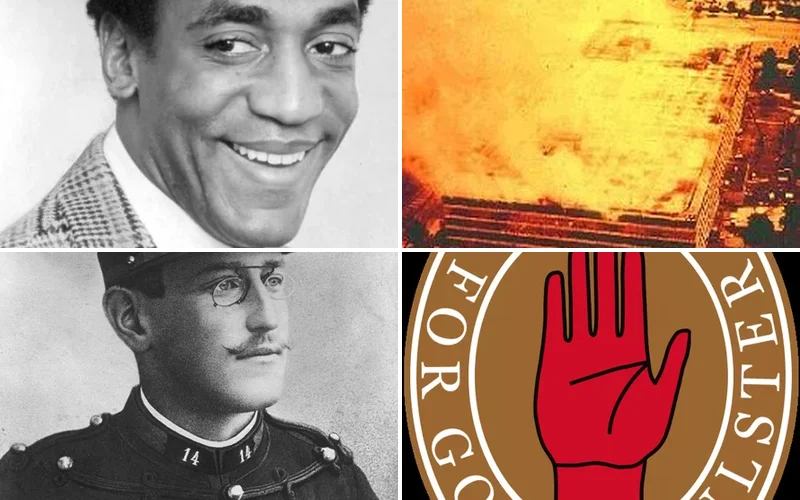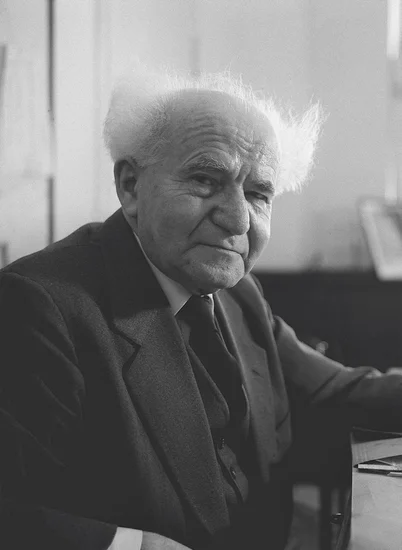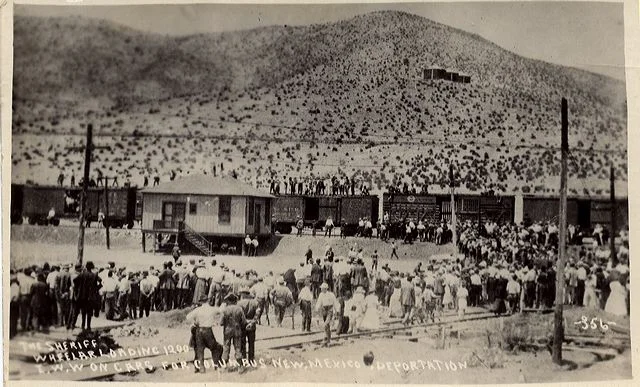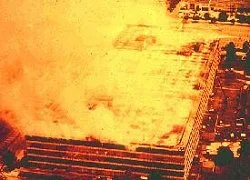July 12 stands as one of history’s most eventful days, witnessing the rise and fall of empires, groundbreaking discoveries, and moments that shaped our modern world across centuries of human achievement.

Politics and Government Events on July 12
1913 – Second Revolution Against Beiyang Government
Li Liejun proclaimed Jiangxi independent from the Republic of China, sparking the Second Revolution against the Beiyang government. This bold declaration challenged the central authority’s control over provincial territories.
The uprising represented growing tensions between republican ideals and military strongmen. Regional warlords increasingly defied Beijing’s authority, fragmenting China’s nascent democratic experiment.
1920 – Soviet-Lithuanian Peace Treaty Signed
Soviet Russia formally recognized Lithuania’s independence through this groundbreaking peace treaty. The agreement established diplomatic relations between the two nations after years of conflict.
Lithuanian sovereignty gained international legitimacy through Moscow’s recognition. This treaty became a cornerstone of Baltic independence movements throughout the twentieth century.
1948 – Expulsion from Lod and Ramla

Israeli Prime Minister David Ben-Gurion ordered the expulsion of Palestinians from Lod and Ramla. This military operation displaced thousands of residents from their ancestral homes.
The forced relocations reshaped the demographic landscape of central Palestine. These events became pivotal moments in the ongoing Israeli-Palestinian conflict.
1960 – Orlyonok Pioneer Camp Founded
The Soviet Union established Orlyonok as the main Young Pioneer camp for the Russian SFSR. This facility became the premier destination for Soviet youth education and recreation.
Thousands of children would experience communist ideological training at this Black Sea facility. Orlyonok shaped generations of Soviet citizens through its structured programs.
1967 – Newark Riots Begin

Racial tensions exploded into widespread civil unrest throughout Newark, New Jersey. The riots reflected deep-seated frustrations with police brutality and economic inequality.
Property damage reached millions of dollars as protests consumed entire neighborhoods. These events highlighted America’s ongoing struggle with racial justice and urban poverty.
1975 – São Tomé and Príncipe Independence
The island nation of São Tomé and Príncipe declared independence from Portuguese colonial rule. This marked the end of centuries of European domination over the African archipelago.
The new nation faced immediate challenges of economic development and political stability. Independence brought hope for self-determination to this small Atlantic island state.
1979 – Kiribati Gains Independence
The Pacific island nation of Kiribati achieved independence from British colonial administration. This milestone created one of the world’s smallest sovereign states.
The new nation inherited significant challenges including geographic isolation and limited resources. Kiribati’s independence marked the final phase of Pacific decolonization.
Military and Naval History on July 12
1913 – Siege of Vidin Begins
Serbian forces initiated their siege of the Bulgarian city of Vidin during the Second Balkan War. The military operation targeted this strategic Danube River fortress.
The siege would later be called off when the war ended through diplomatic negotiations. This conflict demonstrated the volatile nature of Balkan geopolitics before World War I.
1917 – Bisbee Deportation

Vigilantes kidnapped and deported nearly 1,300 striking miners from Bisbee, Arizona. This illegal mass deportation violated constitutional rights and labor protections.
The miners were transported to the New Mexico desert without food or water. This event became a notorious example of corporate-sponsored suppression of labor rights.
1918 – Battleship Kawachi Explosion
The Imperial Japanese Navy battleship Kawachi exploded at Shunan, killing at least 621 sailors. This catastrophic accident devastated Japan’s naval capabilities during World War I.
The explosion’s cause remained mysterious, though ammunition instability was suspected. This tragedy highlighted the dangerous nature of early twentieth-century naval warfare.
1943 – Battle of Prokhorovka
German and Soviet forces engaged in the Battle of Prokhorovka, one of history’s largest armored engagements. This massive tank battle occurred during the broader Battle of Kursk.
Over 1,500 tanks and assault guns participated in this decisive confrontation. The battle marked Germany’s last major offensive on the Eastern Front.
2006 – Lebanon War Begins
The 2006 Lebanon War erupted between Israel and Hezbollah forces. This conflict would devastate Lebanese infrastructure and displace hundreds of thousands of civilians.
International diplomatic efforts struggled to contain the escalating violence. The war reshaped Middle Eastern geopolitics and strengthened Iranian influence in Lebanon.
Science and Discovery Milestones on July 12
1995 – Successful Earthquake Prediction
Chinese seismologists successfully predicted the 1995 Myanmar-China earthquake, dramatically reducing casualties to just 11 deaths. This remarkable achievement demonstrated advances in earthquake forecasting technology.
The prediction allowed authorities to evacuate vulnerable areas before the disaster struck. This success story highlighted the life-saving potential of scientific earthquake prediction methods.
2001 – Space Shuttle Atlantis Mission
Space Shuttle Atlantis launched on mission STS-104, carrying the Quest Joint Airlock to the International Space Station. This critical component enabled astronauts to conduct spacewalks from the ISS.
The airlock installation marked a major milestone in space station construction. This mission advanced international cooperation in space exploration and research.
1961 – Pune Dam Disaster
The Khadakwasla and Panshet dams failed catastrophically, flooding Pune and killing at least 2,000 people. This engineering disaster highlighted the dangers of inadequate dam construction and maintenance.
The flooding devastated India’s growing industrial city and surrounding agricultural areas. This tragedy led to improved dam safety regulations and emergency preparedness protocols.
Cultural and Arts Events on July 12
1971 – Australian Aboriginal Flag Debut
The Australian Aboriginal flag was flown for the first time, becoming a powerful symbol of Indigenous identity and rights. This historic moment marked growing Aboriginal political consciousness.
The flag’s design incorporated traditional colors representing the Aboriginal people and their connection to the land. This symbol would become central to Indigenous rights movements across Australia.
1973 – National Personnel Records Fire

A devastating fire destroyed the entire sixth floor of the National Personnel Records Center in St. Louis. This disaster eliminated millions of military service records dating back decades.
The fire created permanent gaps in American military history documentation. Veterans faced significant challenges proving their service records for benefits and recognition.
Religious and Social Events on July 12
1963 – First Moors Murder
Sixteen-year-old Pauline Reade disappeared in Gorton, England, becoming the first victim of the notorious Moors murders. This crime shocked Britain and highlighted the vulnerability of young people.
The disappearance marked the beginning of one of Britain’s most infamous serial killer cases. The Moors murders would terrorize communities and reshape public safety awareness.
1998 – Quinn Brothers Tragedy

The Ulster Volunteer Force attacked a house in Ballymoney with a petrol bomb, killing three young Quinn brothers. This horrific crime shocked Northern Ireland during the troubled peace process.
The children’s deaths galvanized public opinion against sectarian violence. This tragedy became a turning point in Northern Ireland’s journey toward lasting peace.
Business and Economic Events on July 12
2012 – Nigerian Tank Truck Explosion
A tank truck explosion in Okobie, Nigeria, killed more than 100 people in a devastating industrial accident. This tragedy highlighted the dangers of petroleum transportation in developing nations.
The explosion destroyed homes and businesses in the surrounding community. This disaster prompted calls for improved safety regulations in Nigeria’s oil industry.
Transportation and Infrastructure on July 12
1961 – ČSA Flight 511 Crash
ČSA Flight 511 crashed at Casablanca-Anfa Airport in Morocco, killing all 72 people aboard. This aviation disaster marked one of the deadliest accidents in Czechoslovakian airline history.
The crash investigation revealed significant safety deficiencies in international aviation standards. This tragedy contributed to improved aircraft safety protocols and airport emergency procedures.
2013 – French Train Derailment

A French passenger train derailed in Brétigny-sur-Orge, killing six people and injuring 200 others. This railway disaster shocked France and raised questions about infrastructure maintenance.
The derailment occurred during peak travel season, maximizing the potential for casualties. This accident prompted comprehensive reviews of French railway safety systems.
Sports and Recreation on July 12
2007 – U.S. Military Airstrike in Baghdad
U.S. Army Apache helicopters conducted controversial airstrikes against insurgents in Baghdad, resulting in civilian casualties. Cockpit footage would later be leaked to the internet, sparking international debate.
The leaked video became known as “Collateral Murder” and intensified criticism of military operations. This incident highlighted the complex ethical challenges of modern warfare.
2012 – Syrian Government Attack in Tremseh
Syrian government forces targeted rebel homes in Tremseh, killing between 68 and 150 people. This massacre demonstrated the escalating brutality of Syria’s civil war.
International observers struggled to document the exact casualty count amid ongoing violence. This attack further isolated Syria’s government from the international community.
Notable Births on July 12
1904 – Pablo Neruda

Chilean poet and diplomat Pablo Neruda was born, destined to become one of the twentieth century’s greatest literary voices. His childhood in southern Chile profoundly influenced his poetic sensibilities.
Neruda would later win the Nobel Prize in Literature for his passionate and politically engaged poetry. His works celebrated love, nature, and social justice across Latin America.
1937 – Bill Cosby

American comedian and actor Bill Cosby was born in Philadelphia, Pennsylvania. His early experiences in working-class Philadelphia shaped his later comedic perspectives.
Cosby would become one of America’s most successful entertainers before his later legal troubles. His influence on comedy and television remained significant for decades.
1943 – Christine McVie

English singer-songwriter Christine McVie was born, later becoming a crucial member of Fleetwood Mac. Her musical talents emerged during her childhood in the English countryside.
McVie contributed essential vocals and songwriting to some of rock music’s most enduring albums. Her work with Fleetwood Mac defined the sound of 1970s popular music.
1977 – Brock Lesnar

American mixed martial artist and professional wrestler Brock Lesnar was born in rural South Dakota. His athletic prowess became evident during his high school wrestling career.
Lesnar would dominate both professional wrestling and mixed martial arts competitions. His physical abilities and competitive drive made him one of combat sports’ biggest stars.
1997 – Malala Yousafzai

Pakistani activist Malala Yousafzai was born in Mingora, Pakistan, destined to become the world’s youngest Nobel Prize laureate. Her father’s commitment to education deeply influenced her early development.
Yousafzai would survive a Taliban assassination attempt and become a global advocate for girls’ education. Her courage and determination inspired millions worldwide.
Notable Deaths on July 12
1935 – Alfred Dreyfus

French army officer Alfred Dreyfus died, ending the life of a man whose wrongful conviction had divided France. The Dreyfus Affair exposed deep antisemitism within French military and political institutions.
His eventual exoneration vindicated supporters of justice and truth. Dreyfus became a symbol of the struggle against prejudice and institutional corruption.
1979 – Minnie Riperton

American singer Minnie Riperton died at age 31, silencing one of music’s most distinctive voices. Her five-octave vocal range and whistle register made her uniquely gifted.
Riperton’s song “Lovin’ You” showcased her extraordinary vocal abilities to worldwide audiences. Her death from breast cancer cut short a promising musical career.
2003 – Benny Carter

American jazz musician Benny Carter died at age 95, ending one of music’s most prolific careers. His contributions to jazz arrangement and composition spanned nearly eight decades.
Carter’s work influenced generations of musicians across multiple genres. His longevity and creativity made him a living link to jazz’s golden age.
2020 – Kelly Preston

American actress Kelly Preston died at age 57 after a private battle with breast cancer. Her performances in films like “Jerry Maguire” and “Twins” showcased her versatile talents.
Preston’s death shocked Hollywood and her many fans worldwide. Her marriage to John Travolta had made them one of entertainment’s most enduring couples.
Holidays and Observances on July 12
Orangemen’s Day

The Twelfth, also known as Orangemen’s Day, is celebrated in Northern Ireland, Scotland, and Newfoundland and Labrador. This Protestant celebration commemorates the Battle of the Boyne in 1690.
Orange Order parades mark this significant date in Ulster Protestant culture. The day represents both religious heritage and political identity for many communities.
Naadam Festival Second Day
Mongolia celebrates the second day of Naadam, the country’s most important cultural festival. This traditional celebration features the “three games of men”: wrestling, horse racing, and archery.
The festival celebrates Mongolian independence and cultural heritage. Participants compete in contests that honor ancient warrior traditions and nomadic skills.
Eastern Orthodox Liturgical Calendar
July 12 holds special significance in the Eastern Orthodox liturgical calendar. Various saints and religious observances are commemorated on this date across Orthodox Christian communities.
The day includes celebrations of Saints Peter and Paul in some Orthodox traditions. These observances connect modern believers with ancient Christian heritage and martyrdom.
